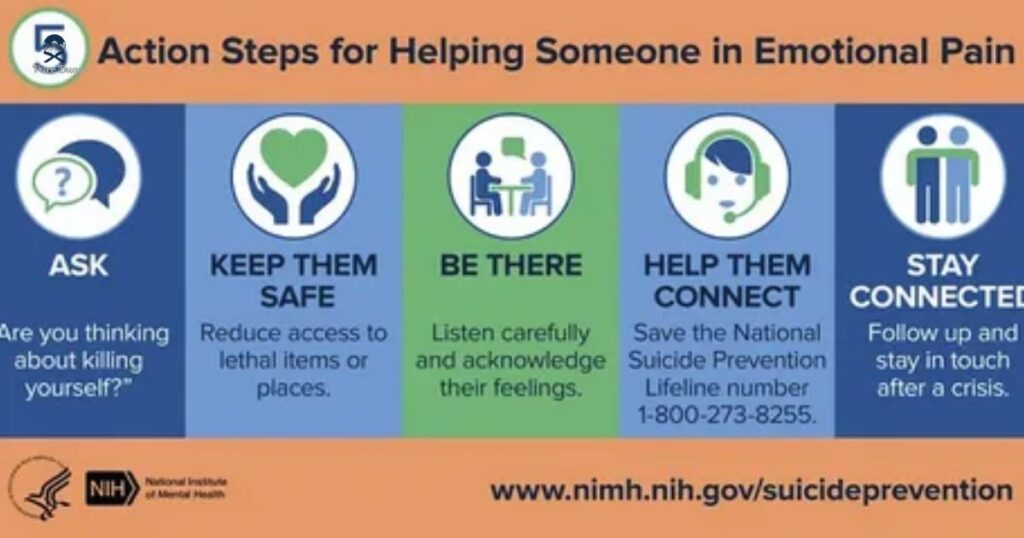Scripture for suicidal thoughts becomes your lifeline when despair feels overwhelming and hope seems hopeless to find. Many believers struggle silently, wondering if their faith during dark times means anything when death feels like the only escape from unbearable pain. The biblical anchor for troubled minds offers more than empty platitudes,it provides spiritual strength that transforms your deepest distress into pathways toward healing and reparation.
Scripture for suicidal thoughts promises sacred involvement exactly when human resources fail completely and professional help feels incapable or out of reach. God’s promises for broken hearts are not theoretical concepts but practical weapons against the lies depression whispers about your worth and future outlook. Sacred words for healing carry spiritual power to move into mental darkness, offering comfort for depression that stand out all human understanding and medical proceeding.
Scripture for suicidal thoughts will be soundly explored in this broad guide, telling how biblical hope for depression transforms lives with specific verses, practical application methods, and real-world evidence from survivors. You will detect prayer for suicidal thoughts techniques, Christian suicide prevention schemes, and faith-based mental health movement that honour both spiritual truth and professional mental care. This article addresses your brave need for hope while providing actionable steps toward recovery, ensuring you never face these battles alone or without divine support.
Definition of Faith-based Mental Health
Faith-based mental health represents an united move to mental health that combines evidence-based healing practices with spiritual opinion, principles, and religious community support systems. Religious mental health professionals understand that God’s grace in mental illness works through dual channels,including therapy, medication, faith community support, and scripture meditation depression practices, creating holistic treatment plans that address mind, body, and spirit at the same time for optimal healing outcomes.
When is someone considered suicidal?

Someone is considered suicidal when they express scripture for suicidal thoughts becomes their imperative search for answers, experiencing lasting thoughts about ending their life or feeling cornered without escape options. Christian suicide prevention experts recognize warning signs including giving away personal property, retreating from loved ones, expressing hopelessness about the future, or making statements like “everyone would be better off without me.” Scripture for suicidal thoughts often becomes more urgent when individuals research methods, write goodbye letters, or suddenly seem smooth after periods of intense depression, this calmness can inform they’ve made a decision and require quick intervention.
Faith-based mental health professionals understand that suicidal idealization survive on a compass, from passive thoughts like wishing you would not wake up to active planning with special methods and timelines. Scripture for suicidal thoughts searches heighten when someone moves from occasional death wishes to detailed suicide plans, especially when united with access to deadly means and social isolation. Biblical hope for depression becomes critical during this changeover phase, as God’s promises for broken hearts can disrupt the progression from thoughts to actions through divine involvement and community support systems that realize these harmful warning signs.
What to do when you are depressed and suicidal?
Scripture for suicidal thoughts supply your first defence against intense despair, but combining spiritual resources with practical action steps creates the most impressive response to mental health crises. Christian depression support emphasizes that seeking help shows faith rather than weakness, as God’s grace in mental illness often works through medical professionals, counselors, and crisis involvement specialists. Scripture for suicidal thoughts should be paired with quick safety measures including removing deadly means, calling crisis hotlinks like 988, and reaching out to trusted friends or family members who can provide physical presence during unsafe moments.
Faith during dark times requires both sacred disciplines and abstract preserving actions that honour your life’s sacred value while addressing the implicit causes of your pain. suicidal thoughts becomes more powerful when combined with professional treatment plans that might include therapy, medication, hospital care, or intense outpatient programs designed generally for Christian mental wellness. Self-care includes recognizing that heavenly hope for earthly pain sometimes arrives through human assistants like doctors, counselors, and crisis workers who serve as God’s hands and heart during your most insecure moments.
Pray and meditate on God’s Word
Scripture for suicidal thoughts becomes your religious medication when traditional prayers feel impossible and your relation with God seems severed by depression’s heavy fog. Scripture meditation depression practices include breath prayers where you inhale God’s promises and exhale your pain, creating Adonis spiritual exercises that smooth both mind and body during crisis moments.
Ask for help

Scripture for suicidal thoughts reminds us that even Jesus relied on others during His darkest moments, making help-seeking a biblical principle rather than personal weakness or spiritual failure.Scripture for suicidal thoughts often leads people to discover that faith community support provides both direct crisis help and long-term recovery partnerships through rustic care, prayer teams, and fellow believers who understand mental health struggles primary.
Biblical hope for depression grows powerful when you trigger your support network, including family members, close friends, church leaders, mental health professionals, and crisis counselors trained in Christian suicide prevention techniques. Scripture for suicidal thoughts becomes more meaningful when shared with others who can pray with you, read passages aloud, and provide physical existence during intense moments of despair.
Understand that not everyone is going to understand
Scripture for suicidal thoughts preparation includes accepting that some well-meaning Christians might offer unhelpful advice like “just pray more” or “have stronger faith” without understanding mental illness quality. Scripture for suicidal thoughts becomes your anchor when others suggest that depression inform spiritual weakness rather than recognizing it as a medical condition that affects believers and non-believers same.
Faith during dark times requires wisdom to differentiate between helpful supporters and those who unknowingly increase your shame through wrong religious counsel or spiritual remarks. God’s grace in mental illness extends special sympathy to those facing both mental health struggles and religious judgment, ensuring that divine strength for weakness upholds you even when human support fails or falls short of your deepest needs.
Stop and ask some questions
Scripture for suicidal thoughts becomes more effective when combined with honest self-examination that helps consider triggers, patterns, and fundamental issues contributing to your mental health crisis. Scripture for suicidal thoughts reflection helps identify between depression’s lies and sacred reality, creating space for comfort in depression to move into the confusion and hopelessness.
Spiritual depression recovery speeds up when you examine your thought patterns through the lens of sacred words for healing, questioning whether your interior dialogue aligns with God’s truth about your identity and future. Christian counseling resources often provide structured form that help identify negative thinking patterns while scripture therapy for mental health offers choices to devastating mental habits.
Expect it to take time
Scripture for suicidal thoughts provides comfort for the long journey ahead, reminding you that healing often happens in real time and spiritual depression recovery often unfolds step by step like sunrise breaking through darkness. Hope and healing declares that mental health recovery involves setbacks, discovery, upland periods, and incremental progress rather than dramatic overnight transformation. God’s grace in mental illness extends patience for your recovery timeline, understanding that mental wellness grows through continuous effort rather than quick fixes or spiritual shortcuts.
Scripture for suicidal thoughts provision includes accepting that some days will feel sticky than others, but heavenly hope for earthly pain uphold you through difficult seasons toward ultimate reparation. Religious mental health professionals emphasize that expecting gradual improvement reduces pressure and shame while bible-based coping strategies provide daily tools for managing symptoms during the long healing process that honour both medical treatment and spiritual growth.
What Does the Bible Say About Depression and Suicidal Thoughts?
What does the Bible say about wanting to die becomes clear when examining 1 Kings 19:4 where Elijah prayed “I have had enough, Lord… take my life,” yet God responded with gentle care, food, rest, and renewed purpose rather than judgment. Scripture for suicidal thoughts throughout the Bible demonstrates that God’s view on mental illness and suicide emphasizes His nearness to the brokenhearted (Psalm 34:18), His understanding of human frailty, and His desire to heal rather than shame those experiencing psychological distress, making biblical hope for depression accessible to everyone regardless of their mental health status.
Psalms to Meditate on for Depression and Suicidal Thoughts
Scripture for suicidal thoughts meditation through Psalm 23:4 reminds you that “even though I walk through the darkest valley, I will fear no evil, for you are with me,” emphasizing that you’re walking through the darkness rather than remaining permanently trapped, while Christ’s comfort for depression accompanies you through every step of this difficult journey toward emotional and spiritual healing.
Bible Verses for Hope while Dealing with Chronic Depression
Scripture for suicidal thoughts provides biblical anchor for troubled minds during extended battles through Jeremiah 29:11’s promise: “For I know the plans I have for you… plans to prosper you and not to harm you, to give you hope and a future,” assuring you that chronic depression doesn’t disqualify you from God’s good purposes or cancel His plans for your life.
Bible Verses on the Promises of God
Scripture for suicidal thoughts like Numbers 23:19 declares “God is not human, that he should lie… Does he promise and not fulfill?” establishing a sacred text healing foundation that His character and commitments stay constant even when your feelings shift dramatically. Scripture for suicidal thoughts through Lamentations 3:22-23 reminds you that “Because of the Lord’s great love we are not consumed, for his compassions never fail… they are new every morning,” offering divine strength for weakness that provides fresh mercy and biblical hope for depression each day, creating sustainable hope for those experiencing extended periods of mental and emotional distress.
Bible Verses to Combat Negative Thoughts
Scripture for suicidal thoughts becomes daily weapons through Philippians 4:8’s instruction to think about “whatever is true, whatever is noble, whatever is right,” providing sacred words for healing that systematically rebuild healthy thought patterns while God’s grace in mental illness empowers you to choose truth over depression’s deceptive whispers about your worth and future possibilities.
What to Remember When You Have Depression and Suicidal Thoughts

Scripture for suicidal thoughts serves as your emergency reminder system that your life holds immense value because you’re made in God’s image (Genesis 1:27), your pain is temporary according to Psalm 30:5 “weeping may stay for the night, but rejoicing comes in the morning,” and you’re never truly alone due to Hebrews 13:5 “Never will I leave you; never will I forsake you.”
Scripture for suicidal thoughts provides biblical anchor for troubled minds through foundational truths that don’t change based on feelings: God has good plans for your future (Jeremiah 29:11), nothing can separate you from His love (Romans 8:38-39), and Christ’s comfort for depression remains available regardless of your emotional state.
Conclusion
Scripture for suicidal thoughts isn’t just ancient text on dusty pages,it’s your lifeline to hope when everything else feels hopeless and your future seems impossible to imagine. Throughout this journey, we’ve discovered that biblical hope for depression acknowledges your pain without minimizing it, offers sacred words for healing that speak directly to your wounded heart, and provides comfort for depression that surpasses human understanding.Remember that seeking help through Christian crisis intervention resources, faith community support, and professional counseling doesn’t indicate weak faith,it demonstrates wisdom and courage that honors the life God has given you.
Scripture for suicidal thoughts has shown you that you’re in good company with biblical heroes who faced similar struggles yet discovered that God’s promises for broken hearts never fail those who trust in Him. If you’re struggling right now, please reach out to 988, your local emergency services, or trusted friends and family. Your life matters immensely to God and to this world that desperately needs the unique gifts and purpose He’s placed within you.
Frequently Asked Questions
Can Christians really struggle with depression and suicidal thoughts?
Yes, absolutely. Many biblical characters like David, Elijah, and Job experienced deep depression. Mental illness doesn’t indicate weak faith,it shows human vulnerability.
Is it sinful to have suicidal thoughts as a believer?
No, having suicidal thoughts isn’t sinful. These are symptoms of mental illness, not spiritual failure. God shows compassion, not condemnation, for your struggles.
How can Bible verses help when I’m feeling suicidal?
Scripture provides truth that counters depression’s lies, offers God’s promises for hope, and reminds you of your worth when feelings overwhelm reality.
Should I seek professional help or just rely on prayer and Bible reading?
Both! God often works through doctors, counselors, and medication alongside prayer and Scripture. Seeking professional help demonstrates faith, not weakness in believing.
What should I do if Bible verses don’t make me feel better immediately?
That’s normal. Healing takes time. Keep reading Scripture, seek professional help, connect with supportive people, and trust God’s gradual healing process completely.
Read More Blogs:Pure Duas
